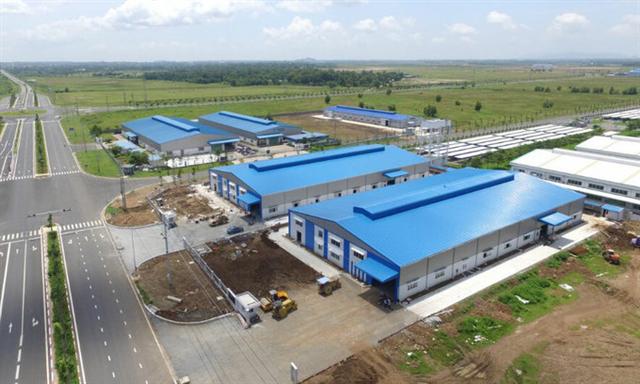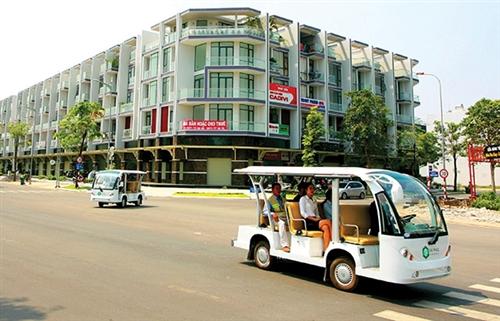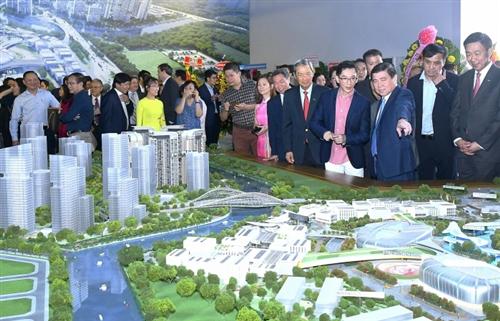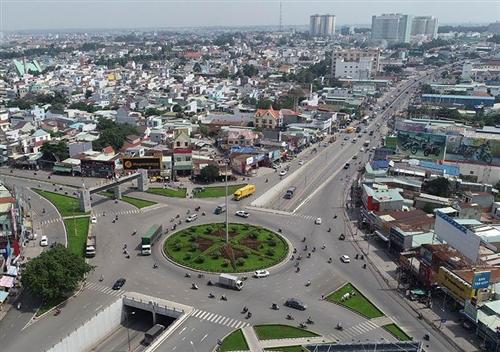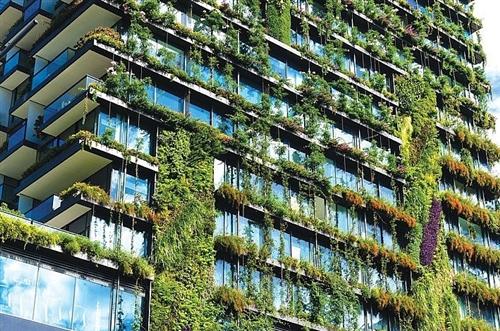Industrial estate to thrive as multinationals leave China
Industrial estate to thrive as multinationals leave China
Vietnam’s industrial real estate will benefit as foreign investors move production out of China after the Covid-19 pandemic, industry insiders say.
Factories seen in Chau Duc Urban Industrial Park in southern Ba Ria-Vung Tau Province. Photo courtesy of Sonadezi Chau Duc.
|
A recent report by brokerage VNDirect says that the trend of moving production out of China is set to become increasingly evident following the pandemic, and Vietnam, with its proximity and low land and labor costs, will be a more attractive destination than other Southeast Asian countries.
The average industrial land price of $103.5 per square meter per term in Vietnam compares favorably to Malaysia ($224.5) and Thailand ($182.5).
Vietnam’s business income tax of 20 percent is among the lowest in Southeast Asia, compared to Malaysia’s 24 percent, Myanmar’s 25 percent and the Philippines’s 30 percent, it said, adding that Vietnam also offers more tax incentives to companies operating in industrial parks.
The country’s many trade agreements, especially the EU-Vietnam Free Trade Agreement which is set to come into effect this year, will be another positive factor in attracting foreign investors, it said.
Industry insiders also say that Vietnam, with 258 industrial parks operating by the end of last year, has great potential to welcome more foreign investment diverted from China, as Apple, Google and Microsoft have all reportedly been making plans to begin production in Vietnam this year.
Su Ngoc Khuong, senior director of real estate service firm Savills Vietnam, said Vietnam’s political stability and fast economic growth are positive factors for drawing foreign investment.
A recent report by real estate market research firm Jones Lang LaSalle (JLL) shows that Vietnam’s industrial land prices rose by up to 12 percent year-on-year in the first quarter despite pandemic impacts.
Ready-built factories costing $3.5-5 per square meter per month are favored by businesses as indicated by their high occupancy rates, it said.
"Industrial park developers remain confident that demand for land will continue to grow and therefore land prices are expected to increase in line with the long-term potential of Vietnam’s industrial segment," said Stephen Wyatt, country head of JLL Vietnam.
Most industrial land developers have posted strong numbers in the first quarter despite the pandemic.
Sonadezi Chau Duc, which manages a real estate park in Ba Ria-Vung Tau, saw revenues surge 2.5 times year-on-year to VND121 billion ($5.1 billion); while Long Hau Corp, with an industrial park in the southern Long An Province, saw it surge 20 percent to VND206 billion ($8.8 million); and Kinh Bac City Development Holding Corp, which manages eight industrial parks nationwide, saw an increase of 11 percent to VND556 billion ($23.7 million).
VNDirect analysts said that Vietnam was ready to become an alternative manufacturing hub to China, adding that the southern province of Ba Ria-Vung Tau and the northern provinces of Bac Giang and Hai Duong could become new industrial hotspots thanks to improved infrastructure.


